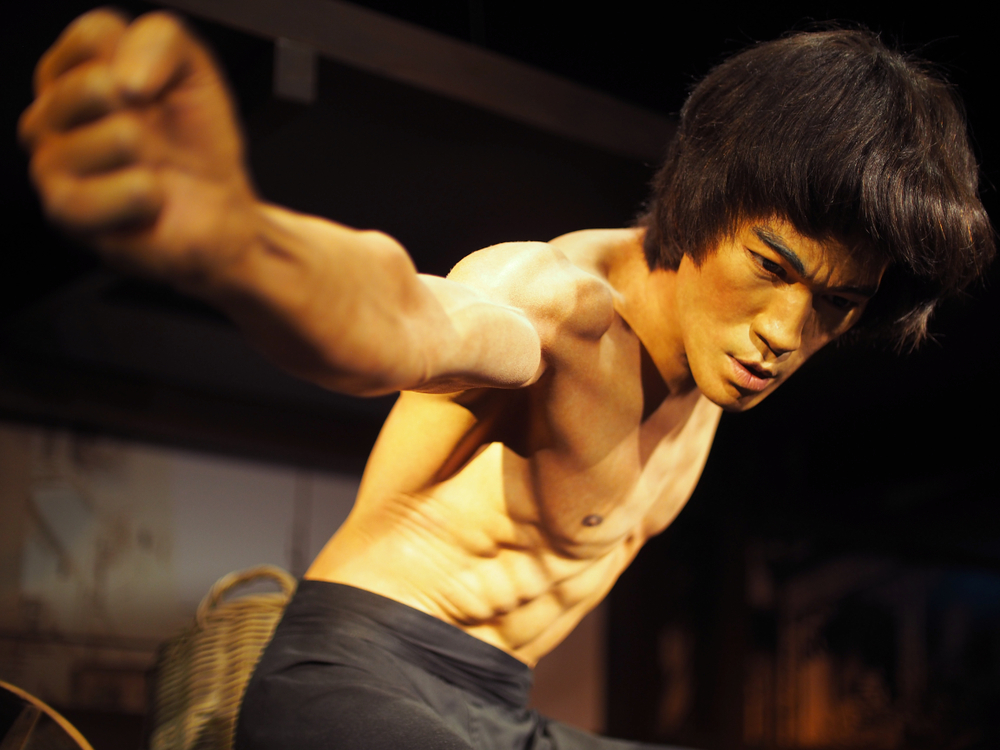

Growing up, I loved Bruce Lee. His fighting skills, elegance and wit were unique. But beyond that, he showed that someone who looked different from the conventional superstar could become a global icon (a bit like Muhammad Ali). I wasn’t alone in thinking that. In a strange mash-up, the American rap scene took him up as an icon most notably with the American hip hop group Wu-Tang Clan. Their debut album, “Enter the Wu-Tang (36 Chambers)”, was a clear play on Bruce Lee’s most famous film “Enter the Dragon”. The album was replete with samples from Asian martial arts movies.
Recently, I stumbled across the personal writings of Bruce Lee, which reveal an incredibly deep individual. He was not only a master of the physical, but it seems he was also a master of the spiritual. He is famously known for this quote:
“You must be shapeless, formless, like water. When you pour water in a cup, it becomes the cup. When you pour water in a bottle, it becomes the bottle. When you pour water in a teapot, it becomes the teapot. Water can drip and it can crash. Become like water my friend.”
But he actually had developed a much more refined and systematic approach to living in that way. In early 1967, Bruce Lee started to develop Jeet Kune Do (JKD), which initially was a new approach to martial arts based on his own scientific studies of combat. However, in 1970 due to a back injury, he was bedridden for several months and was unable to train his body. This allowed him to train his mind and he realised that JKD was more about subduing oneself than subduing one’s opponent. It then would describe JKD as “the art of the soul at peace – like moonlight mirrored in a deep lake”.
In his notes, he writes about the ultimate source of JKD and warns of the risk of any technique becoming a disease if the mind becomes obsessed with it. He was particularly interested in “desire”, which he saw as an attachment. He even said that “desiring not to desire” was an attachment. More specifically he described “The Six Diseases” to avoid:
It should be noted that victory, technical cunning and so on are not necessarily bad in themselves, it is the desire for them that should be avoided. The desire prevents us being in a state of emptiness, which would in turn obstruct our freedom of action. I imagine that Bruce Lee thought these six desires/diseases were the more powerful ones to overcome. The desire to win (1) can obstruct us. The desire to show off or be too smart (2 and 3) could distract us from what is needed. The desire to overawe (4) could make us lose sight of the other. The desire to play a passive role (5) makes us lose accountability and exploits the other by making us appear the victim. And the desire to get rid of disease (6), or dis-ease or discomfort whether mental or physical as I would call it, creates a separation between us and the factor causing discomfort, when in reality there is no separation.
Anyway, I’d thoroughly recommend learning more about the philosophy of Bruce Lee. The book “Bruce Lee: Artist of Life“ contains drafts of his personal writings, and his daughter has a weekly podcast on his teachings.
Thanks,
Bilal
Spring sale - Prime Membership only £3 for 3 months! Get trade ideas and macro insights now
Your subscription has been successfully canceled.
Discount Applied - Your subscription has now updated with Coupon and from next payment Discount will be applied.